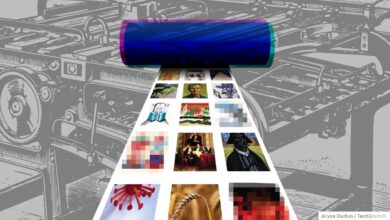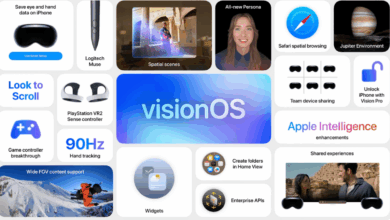Anthropic Launches Visual PDF Analysis in Latest Claude AI Update

As a major step forward in document processing, Anthropic has unveiled new PDF support capabilities for its Claude 3.5 Sonnet model. This development marks a critical step forward in bridging the gap between traditional document formats and AI analytics, allowing organizations to leverage advanced AI capabilities in their existing document infrastructure.
The integration comes at a crucial time in the evolution of AI document processing, as companies increasingly seek seamless solutions for processing complex documents that contain both textual and visual elements. This enhancement places Claude 3.5 Sonnet at the forefront of comprehensive document analysis, addressing a critical need in professional environments where PDF remains the standard format for business documentation.
Technical possibilities
The newly implemented PDF processing system works via an advanced multi-layer approach. At its core, the system uses a three-phase processing methodology:
- Text extraction: The system begins identifying and extracting textual content from the document while maintaining structural integrity.
- Visual processing: Each page is converted into an image format, allowing the system to capture and analyze visual elements such as charts, graphs, and embedded figures.
- Integrated analysis: The final phase combines both textual and visual data streams, enabling comprehensive understanding and interpretation of documents.
This integrated approach allows Claude 3.5 Sonnet to perform complex tasks such as analyzing financial statements, interpreting legal documents, and facilitating document translation, while maintaining context between both textual and visual elements.
Implementation and access
The PDF processing feature is currently available through two primary channels:
- Claude Chat function example for direct user interaction
- API access using the specific header “anthropic-beta:pdfs-2024-09-25”
The implementation infrastructure can accommodate different document complexities while maintaining processing efficiency. The technical requirements are optimized for practical business use, with support for documents up to 32 MB and 100 pages long. This specification framework ensures reliable performance for a wide range of document types and formats commonly used in professional environments.
Looking ahead, Anthropic has outlined plans for extensive platform integration, specifically targeting Amazon Bedrock and Google Vertex AI. This planned expansion demonstrates a commitment to broader accessibility and integration with major cloud service providers, potentially allowing more organizations to leverage these capabilities within their existing technology infrastructure.
The integration architecture allows a seamless combination with other Claude features, especially its tooling capabilities, allowing users to extract specific information for specialized applications. This interoperability increases the usability of the system across different use cases and workflows, providing flexibility in how organizations can deploy and use the technology.
Practical applications
The integration of PDF processing capabilities into Claude 3.5 Sonnet opens up new possibilities across multiple industries. Financial institutions can now automate the analysis of annual reports, prospectuses and investment documents, while law firms can streamline contract review and due diligence processes. The system’s ability to handle both text and visual elements makes it particularly valuable for industries that rely on data visualization and technical documentation.
Educational institutions and research organizations benefit from enhanced document translation capabilities, enabling seamless processing of multilingual academic and research papers. The technology’s ability to interpret charts and graphs alongside text provides comprehensive insight into scientific publications and technical reports.
Technical specifications and limitations
Understanding the system parameters is crucial for optimal implementation. The current framework operates within specific boundaries:
- File size management: Documents must remain smaller than 32 MB
- Page restrictions: Maximum capacity of 100 pages per document
- Security Restrictions: Encrypted or password-protected PDFs are not supported
The processing fee structure is designed around a token-based model, where page requirements vary based on content density. Typical consumption ranges from 1,500 to 3,000 tokens per page, integrated into standard token prices without additional premiums. This transparent pricing model allows organizations to effectively budget for implementation and usage.
Optimization guidelines
To maximize system effectiveness, several key optimization strategies are recommended:
Document preparation:
- Ensure clear text quality and readability
- Ensure proper page alignment
- Use standard page numbering systems
API implementation:
- Place PDF content before text in API requests
- Implement prompt caching for iterative document analysis
- Segment larger documents when you exceed size limits
These optimization practices improve processing efficiency and improve overall results, especially when processing complex or long documents.
The bottom line
The integration of PDF processing capabilities into Claude 3.5 Sonnet marks a significant advancement in AI document analysis, addressing the critical need for advanced document processing while maintaining practical accessibility. As organizations continue to digitize their operations, this development, coupled with Anthropic’s planned platform expansions, positions the technology to potentially reshape the way companies approach document management and analytics.
With its extensive document understanding capabilities, clear technical parameters and optimization framework, the system offers a promising solution for organizations looking to improve their document processing with AI.





